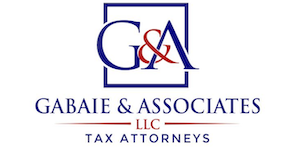A letter from the IRS may give most taxpayers cause for concern. A CP2000 Notice is a notice from the IRS that income information or payment information does not match the tax information provided on the taxpayer's return. If the notice is about unreported or underreported income, this may result in an increase in your taxes.
Contact Juda Gabaie at Gabaie & Associates, LLC for help with responding to a CP2000 notice or any other tax issues.
What is an IRS CP2000 - Notice of Unreported Income?
An IRS CP2000 Notice generally means that the information on file with the IRS does not match the return provided by the taxpayer. This could be a discrepancy in the amount of income reported, unreported source of income, or other differences between the taxpayer's return and the IRS records.
According to the IRS, information in the CP2000 notice may include:
- Amounts reported on the taxpayer's original or amended return
- Amounts reported to the IRS by the payer
- Payer's name, ID number, type of document issued (W-2, 1098, 1099), and the tax identification number
- Proposed changes to the taxpayer's income, tax, credits, and/or payments
- Response form, payment voucher, and envelope.
The difference may be related to a clerical or accounting error, forgetting about a source of income, or party incorrectly reporting the taxpayer because of a mistake or fraud. For example, an employer could have made a mistake entering in an employee's Social Security Number or someone could be using another person's SSN. This could result in reported income to the taxpayer that the taxpayer is unaware of.
Next Steps After Receiving a CP2000 From the IRS
The notice provides basic information for responding to a CP2000. You should read the notice carefully to understand what the notice is indicating, where the unreported income is from, and how much the unreported income can affect your tax payment.
The IRS notice may have a Response section or provide instructions for providing a response. If the taxpayer agrees with the notice, then the taxpayer can respond in agreement and sign the notice (with signatures of both spouses if married filing jointly).
The IRS recommends responding to the CP2000 notice within 30 days of the date of the notice for a quick resolution, (or 60 days if the taxpayer lives outside the U.S.). If the IRS does not receive a response by the response date, they may send a Statutory Notice of Deficiency.
Unreported income can have consequences beyond just additional tax payments. Unreported income can come with late penalties or change your entire tax return (including payment, refund, and tax rate). Contact your Maryland tax attorney if you have questions about a CP2000 notice or if you disagree with the notice.
Review Your Prior Tax Return and Tax Records
After a CP2000 notice, you may want to review your prior tax return to identify any issues. You may also want to review records from your employer, financial service providers, mortgage company, and any other sources of income, to make sure the information is correct and up to date.
CP2000 Notice and Tax Increase
The notice of unreported income may result in a tax increase. Generally, the tax increase will result in accrued interest on any unpaid balance until the payment is made in full. If you cannot afford the full amount, you can contact your tax attorney or try and set up a payment plan with the IRS.
If you agree with the notice, the IRS will make the corrections so you do not need to file an amended return. However, unreported income may affect other changes on your tax return, including credits, deductions, or making certain allocations. Talk to your tax attorney about your options after getting an IRS CP2000 notice.
Maryland Tax Lawyer
If you received a notice of unreported income from the IRS, contact Gabaie & Associates, LLC for a free consultation. Contact Juda Gabaie online or call (410) 862-2198 for help with your IRS or Maryland tax issues.
